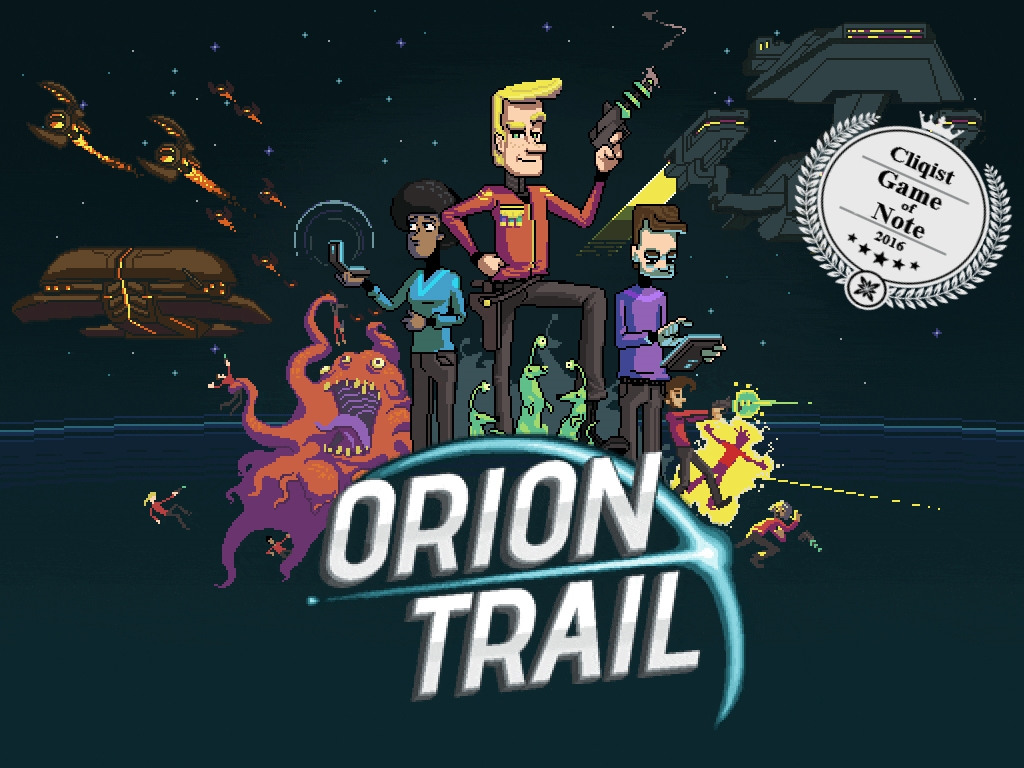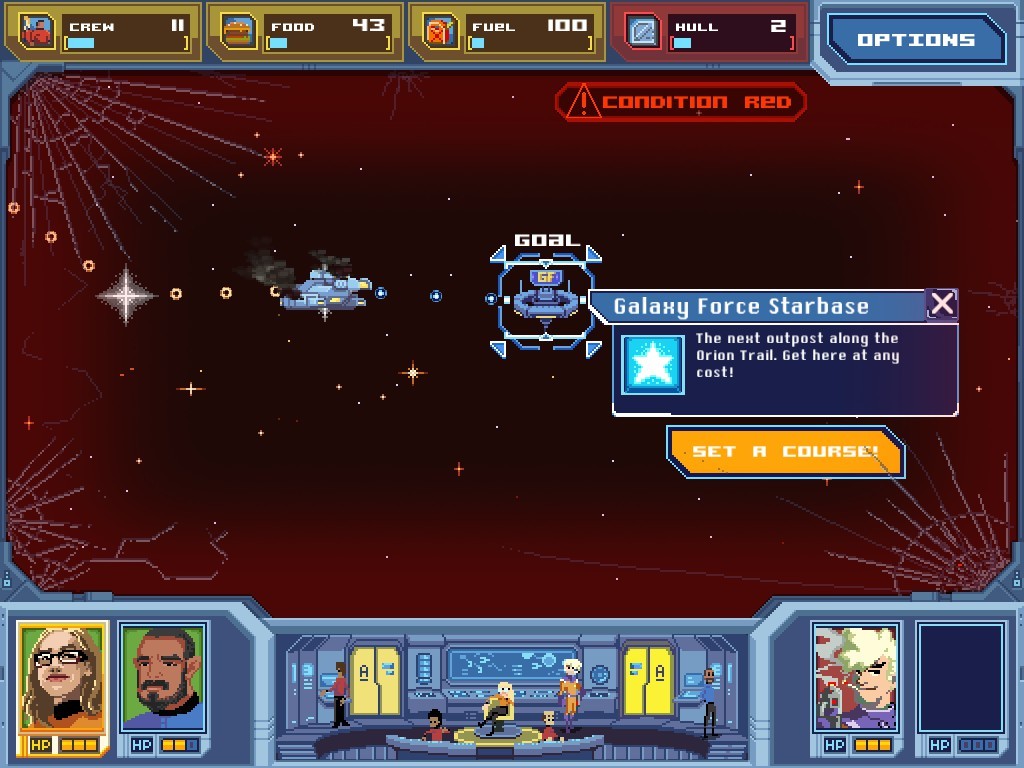From title alone, it’s easy to tell that Orion Trail intentionally evokes the memory of past games. Calling it “Oregon Trail, but in SPACE” could accurately sum up the appeal of Orion Trail, but thankfully it has much more going on that just a cosmic update of a computer lab classic. With unique charm and amusing writing on top of its nostalgic design, it succeeds at creating its own experience rather than simply redecorating a retro game to bring the bucks rolling in. The inspiration it takes from that old game is evident, but recognizing that just made me chuckle rather than making me feel like it was a direct copy of something that came out over two decades ago.Whatever your feelings are about the use of nostalgia as a draw for Kickstarter campaigns, it’s refreshing to see an end result that delivers a uniquely polished product rather than simply bank on the spending power of those with rose-coloured glasses.
Being able to find a tailor-made product rather than hoping you fit under the mass appeal umbrella of big budget game releases is one of the biggest strengths of crowdfunded gaming. Where games with huge budgets and sprawling marketing campaigns rely on attracting as many people as possible with broad, easily digested game designs, a game looking for crowdfunding can benefit greatly from finding its niche and appealing to those particular potential customers as much as possible. That way, developers can take comfort in knowing they really do have a devoted group of supporters rather than just the passing interest of fickle gamers who could very well defect to another similar project if it looks better
Sure, we see plenty of campaigns that aim to be the next big thing, trying to break into areas that are already crowded by hugely popular games. I’ve already said plenty about the hordes of zombie survival games looking for funding out there, so I won’t get into those right now. Sometimes these work out, and sometimes they’re even good, but I have to imagine funding a game that broadly appeals to you must be less satisfying than seeing your dream “this was made for me only” kind of project come to life. Large companies succeed based on the thought that something is close enough to what you like to be worth the money, while crowdfunded games thrive on making a very devoted audience salivate over divisive design choices that strongly appeal to one audience and don’t appeal to another. I might buy a first-person-shooter because it seems to be the best one on the market, but I’d much more happily buy something that is utterly one of a kind and can’t even fit into an established genre.
Given that the generation that grew up during the video game boom of the late 80’s to early 90’s is now in their adulthood, they now actually control a significant amount of spending power. While I’m sure there are exceptions, for the most part I would think that anyone over the age of 20 playing videogames today played them when they were younger too, and holds fond memories of at least a title or two. Some people might be nostalgic for an old franchise in particular, while others might simply long for stylistic choices of design philosophies that have largely been discarded by the big-budget productions of today. Some people long for a simply, more innocent kind of game, others speak fondly of the hardcore, unforgiving designs of other classics. Whatever the particular niche is, it’s almost infinitely exploitable on Kickstarter.
As a result of this, several long-gone franchises have seen a resurrection on Kickstarter in recent years, many of them deemed highly influential cult classics. The Wasteland franchise finally saw a sequel, over 20 years later, and rather than be made into a first person shooter, retained its old-school appeal with its heavy RPG elements. Planescape: Torment is seeing a sort-of sequel thanks to its long-held cult appreciation, often cited as the right way to do things when compared to modern roleplaying games. A certain mystical, “golden age” kind of appeal tends to be applied to older games, with phrases thrown around like “you’d never see that today”. But, thanks to Kickstarter, you can, say these campaigns.
Both of the above are direct sequels to franchises known for their old-school appeal, but some campaigns succeed even without brand recognition. Obsidian’s very successful campaign for Pillars of Eternity is entirely its own intellectual property, but draws obvious inspiration from the widely-praised games like it that came before, such as Baldur’s Gate and Icewind Dale. I’ve chosen three RPGs as examples so far of effective use of nostalgia in getting Kickstarter funding, because they old-school PC-style roleplaying games are just one example of a genre that gamers of today feel is lacking in entries. By filling even just this one particular niche, these three campaigns have brought in millions of dollars and enjoyed massive support, and that’s not even speaking of the many other genres or franchises that modern gamers miss, remember fondly, or even just think they liked more than they did.
With those successful resurrections gaining momentum based on brand recognition and a fondness for older forms of game design, credit must be given to Orion Trail for using its nostalgic appeal in a less blunt-force way. It’s not blasted from the heavens as the long-awaited to that childhood classic you remember so fondly, but instead takes it as inspiration and uses it as a springboard to making its own experience, while remaining entirely its own thing. Rather than being dubbed the “official sequel” of anything of that sort, it simply is a modern game with inspiration in things that have come before, and for that I commend its unique vision and dodging of common crowdfunding manipulation tactics. While I’m not necessarily criticizing those campaigns for which a nostalgic audience is a very large part of their marketing tactics, I just want to say kudos to Schell games for proving Kickstarter really is an avenue for unique, inspired designs and not just a big popularity contest. At its best moments, Kickstarter really can produce some new and exciting things we didn’t even know we wanted until now, just as it brings us our long-awaited dream sequels we’ve been waiting for all our lives.
Orion Trail is a Cliqist Game of Note, be sure to check out the rest of our Orion Trail coverage right here.





